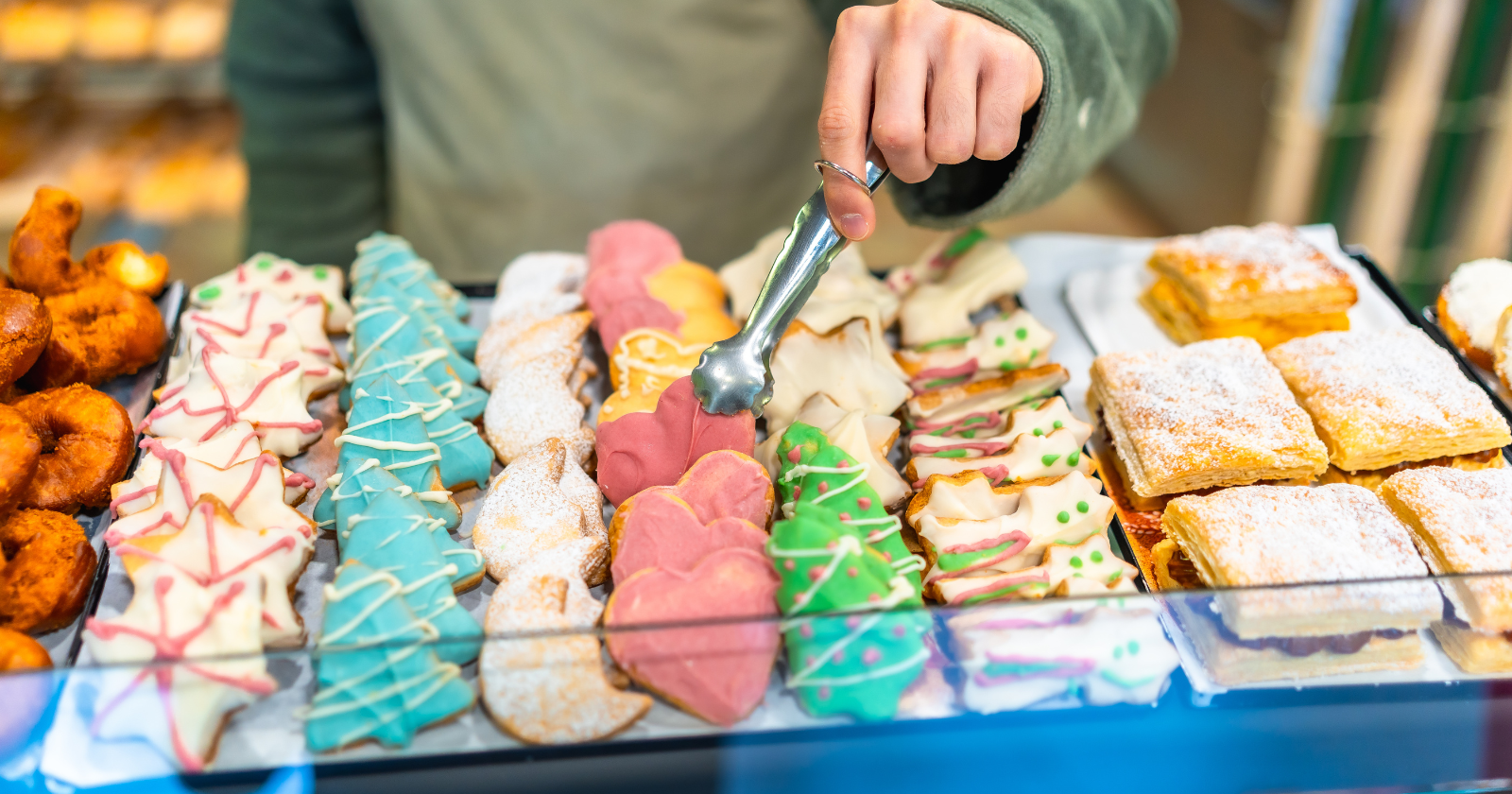You can tell a lot about someone by how they act when no one’s grading them.
That’s why I love watching little moments at the grocery store.
It’s a real-life lab for everyday character—patience, awareness, empathy, and basic hygiene all get stress-tested between the bananas and the bulk bins.
I spent my twenties in luxury hospitality where your job is to notice what other people need before they ask.
That training never turned off.
I still spot the small things—how someone parks their cart, how they treat staff, how they put an item back when they change their mind.
Here are seven small habits I watch for:
1) Cart etiquette
There’s an unspoken social contract with carts and baskets.
Do you return them to the corral, or leave them free-floating like hazards in the parking lot?
Thoughtful people return the cart every time even when it’s raining or even when they’re parked far away.
It’s three extra minutes that save a stray runaway from dinging a car, a parent from chasing a cart with a toddler in tow, and a worker from doing laps outside.
Inside the store, thoughtful folks park their cart to the side, not diagonally across the aisle like a velvet rope.
They keep the handle turned inward so others can pass; they don’t abandon a cart in the middle of the produce section while they “just grab one thing.”
These people show micro-consideration for the flow.
I once watched a gentleman nudge his cart tight to the shelf, step back, and make eye contact as if to say, “You go first.”
That’s hospitality in the wild!
2) Aisle awareness
Ever been stuck behind someone who suddenly goes full-stop in front of the yogurt, stares at their phone, and blocks the entire world?
A little spatial awareness goes a long way.
Thoughtful shoppers keep an eye on the human traffic behind them.
They slide to one side if the aisle is narrow, they don’t park in the middle to debate marinara brands over speakerphone, and they step out of the refrigerated case line if they need a second to compare labels.
Selfish behavior often shows up as headphone tunnel vision or “main character energy.”
The cure is simple: Add one beat of scanning—who’s near me? Am I blocking a shelf? Is there someone with fewer items behind me who looks rushed?
Design your environment so the best behavior is the easiest.
I keep my list in notes with checkboxes so I can glance, move, and not camp in front of the oat milk like a statue.
3) Produce handling
I’m a stickler here because I’ve watched too many avocados get manhandled into guacamole before they ever leave the store.
Thoughtful people treat produce like the next person will eat it… because they will.
They don’t dig their nails into peaches to “test ripeness,” they don’t squeeze bread like a stress ball, and they pick up what they intend to buy, not five versions of the same apple they’ll put back bruised.
Learn gentle tests, such as:
- For avocados, press lightly at the top near the stem, not the belly.
- For stone fruit, check aroma first—ripe fruit smells like itself.
- For tomatoes, look for a slight give and vibrant color rather than a hard squeeze.
Then there’s the bag choice: Do you really need three plastic produce bags for things with their own skin?
Thoughtful people often go without for bananas, onions, or citrus or bring mesh produce bags.
Small choice, big impact.
4) Bulk bins and tongs hygiene

Bulk bins are an honor system.
They run on trust and basic food safety.
Thoughtful shoppers use the provided scoops and tongs and keep them inside the bin, not touching the floor, not migrating between almonds and dried mango like they’re interning in logistics.
They don’t “sample” with bare hands, and they don’t let kids fist-scoop trail mix like it’s a sandbox.
If you live with someone who has allergies, you know how critical this is.
Cross-contact happens in seconds.
I’ve seen people use the same scoop for peanuts and then seeds because “it’s all nuts.” (Seeds are not nuts. Also, no.)
The same goes for olive bars and salad bars—use the right utensil, close lids, and if you spill a little, wipe it up or tell a staff member.
“Someone will get it” is another way of saying “not my problem.”
Thoughtfulness says, “I’ve got this.”
There’s a hospitality principle I still use: Leave it better than you found it.
It’s the quiet kind of integrity you practice when nobody’s watching.
5) Sampling and freebie restraint
I love a good sample station.
It’s a free passport stamp for your palate—one bite of something new, no commitment—but the social math matters.
Thoughtful people take one and move along.
They don’t orbit the station like a satellite waiting for a second pass, they don’t take four “for my cousin in the car,” they don’t crowd the tray before others get a chance, and they also throw away the toothpick or cup instead of leaving it on a shelf next to the crackers.
Tiny trash adds up—selfish folks outsource their mess to the rest of us.
If the product is staffed, thoughtful shoppers ask quick, direct questions: “Is it gluten-free?” or “What’s the spice level?”
They don’t treat the person pouring as a captive therapist.
Sampling is hospitality; it works best when both sides respect the exchange.
If you know you won’t buy today, sample for curiosity but not as if it’s for lunch—it’s a tasting, not a tasting menu.
6) Cold-chain care and shelf discipline
This one’s invisible until you’ve worked in food.
Temperature abuse ruins product quality and can be a safety risk.
Thoughtful shoppers don’t abandon frozen pizza in the cereal aisle.
If they change their mind, they walk the item back to cold storage or hand it to an employee.
It’s five extra steps that keep food out of the trash and the next customer from buying a half-thawed pint that will refreeze into an ice brick.
They also put items back where they found them, facing forward if they can.
That “fronting” helps the next person see what’s in stock.
It’s a mini act of operational kindness—and then there’s dating.
Ever see someone excavating for the newest milk?
We all want fresh, but if you’re going to use it tonight, grabbing the one that expires sooner helps reduce waste.
That’s FIFO—first in, first out—the basic rule every professional kitchen lives by.
Selfish behavior treats the shelf like a personal vending machine.
Thoughtfulness remembers that inventory serves a community, not just a single cart.
7) Checkout grace
Finally, the endgame says the most: how someone handles the line.
Thoughtful shoppers are ready when it’s their turn.
Payment method out, and reusable bags open.
They don’t wait until the last beep to start fishing for their wallet like it’s a scavenger hunt.
If the person behind them has three items and they’ve got a week’s worth, they sometimes wave them ahead.
It’s a tiny sacrifice that generates disproportionate goodwill.
I’ve done this dozens of times and never regretted it.
You lose two minutes, you gain a story about the time a stranger made your day.
Thoughtful shoppers greet the cashier, make eye contact, and say thank you.
They bag if the store allows it, and they keep a steady flow so the belt doesn’t bottleneck.
If something rings up wrong, they ask respectfully.
No sighs, no sarcasm, and no “I need to speak to a manager” over a 60-cent discrepancy.
I learned this on the other side of the counter: the person you’re talking to may not control the policy you dislike, but they do control how pleasant your next three minutes are.
The fastest way to a better experience is respect.
If someone ahead hits a payment glitch, give them a beat instead of broadcasting impatience.
You don’t know their day.
The bottom line
Grocery runs are everyday ethics disguised as errands.
The cart you return, the space you create, the food you handle with care, the utensil you use properly, the sample you take once, the frozen item you walk back, and the kindness you offer at checkout?
Well, none of these make headlines but they make neighborhoods.
If you’re trying to be a more thoughtful person, start where you already go.
Practice in the aisles and ask the quiet questions: Am I helping the flow here? Am I leaving this shelf better than I found it? Is someone else’s day lighter because I passed through?
That’s character in the wild—and it’s on your list, whether you wrote it down or not.
What’s Your Plant-Powered Archetype?
Ever wonder what your everyday habits say about your deeper purpose—and how they ripple out to impact the planet?
This 90-second quiz reveals the plant-powered role you’re here to play, and the tiny shift that makes it even more powerful.
12 fun questions. Instant results. Surprisingly accurate.

